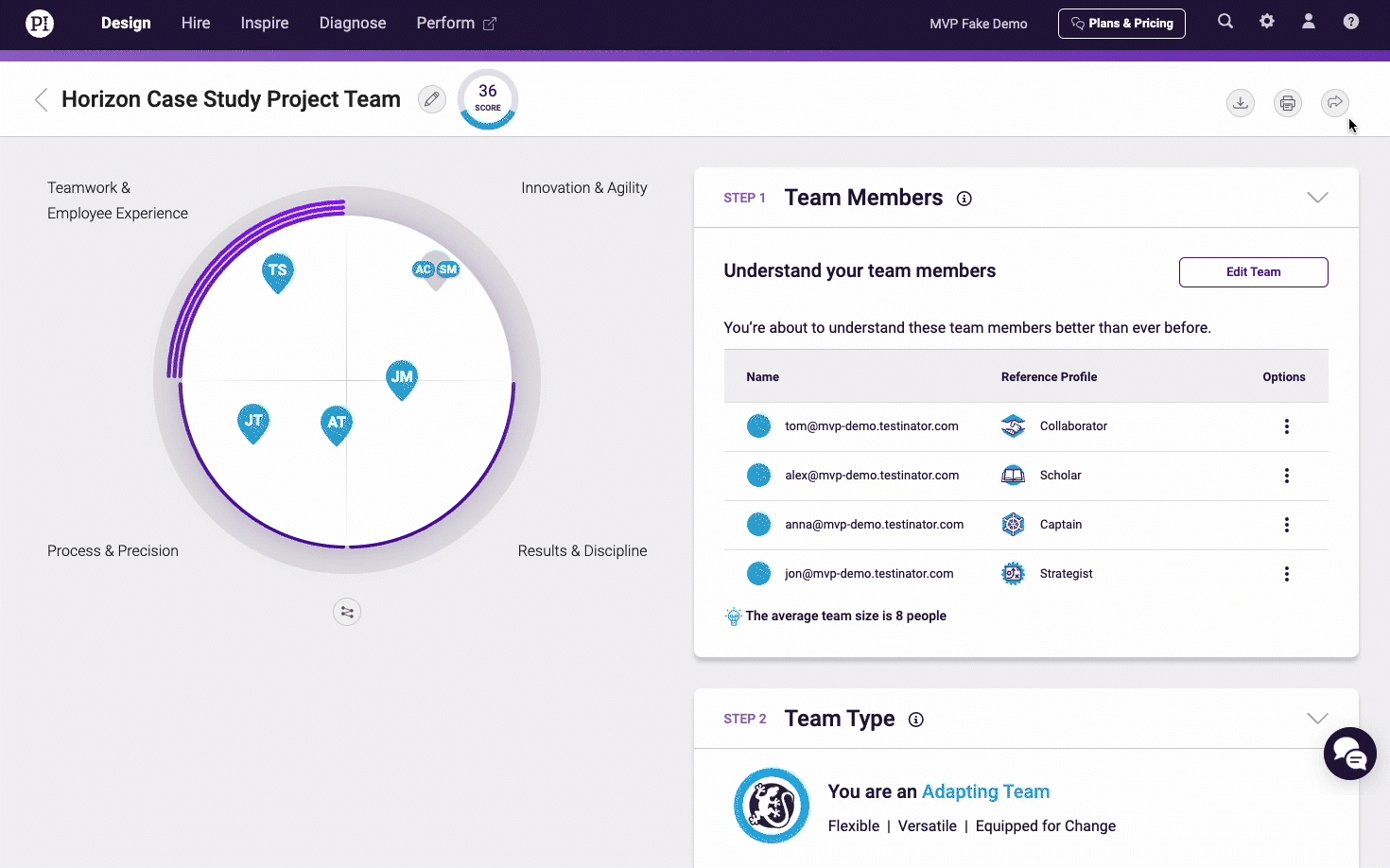Underperformance can stem from many issues. Unclear expectations from management, poor cultural fit, and a lack of constructive feedback are just a few. Underperforming employees prevent your company from meeting its business goals. They can also dampen the rest of the team’s spirits. Bad energy is contagious.
As a manager, you know you need to find a solution. But you don’t want to hurt the employee’s feelings—especially if you’re not a dominant manager by nature. Even so, you have to have those tough conversations. It’s the only way to make progress.
Start by asking specific questions in a direct but caring manner. The goal is to identify the root cause of the dissatisfaction while making your employee feel heard and supported.
Here are five questions that should help you dig down to the heart of the performance problem:
1. What do you need right now to perform to the best of your ability?
Urgency is key.
If you framed the question as “What do you need to do better?” the underperforming employee may offer up long-term solutions. These won’t immediately resolve pressing performance issues like missed deadlines or unmet quotas.
Providing short-term solutions like moving a problematic client will won’t eradicate disengagement. (It usually runs deeper than one bad apple client.) But it can fix those pressing problems. And it shows the employee that you’re willing to help—and that you care about his or her well-being. This will help build trust, which is the foundation for any successful relationship. In fact, “trustworthy” was a top trait of great managers in our recent People Management Study.

2. What is the most defeating/motivating part of your job?
If performing a specific task makes your employee want to bang his or her head against the wall, guess what? That drain will catch up to your organization at large. Find out what that task is—maybe it’s manual timesheets or tedious data entry that you could automate. Then assess whether the company can make a change.
But what if the problem is a lack of trust in—or dislike of—upper management?
Researchers sifted through more than one million Glassdoor reviews. They found that employees’ views of senior management correlated with overall employer ratings. If your underachieving employee has a negative perception of leadership, it will be difficult to motivate this person to perform at a higher level. And if one person is feeling this way, it’s likely many other employees are too. Managers must correct any behaviors that frustrate or create mistrust among employees. It starts with self-awareness.
On the other hand, if there’s a component of an employee’s job spec that’s inspiring and enjoyable, lean into this. Offer the opportunity to do more of this type of work.
3. Are you clear on the impact of your work and how it serves the business?
One person’s underperformance never occurs in a vacuum. There’s always another co-worker, or team of co-workers, who have to pick up the slack—or deal with the ramifications of poor performance. Many times the underperforming employee doesn’t realize this.
Explain the circle of consequences—every action has an outcome that triggers other actions and outcomes. This will generate a more concrete sense of accountability.
For example, showing up late to work a few times a week may not seem like a big deal to one individual. But he or she needs to know that chronic tardiness can cost the business money because of decreased productivity. It can also create feelings of resentment in team members. See if there is anything you can do to help your employee correct the unwanted behavior.
4. How are we going to prevent similar issues from arising in the future?
Employees need to invest in their own performance improvement plans. If not, they may view any judgement on their work as heavy handed or retaliatory. Be cognizant of not micromanaging your employees’ course-correction.
Define benchmarks the employee must meet within a certain amount of time. Set dates for check-ins. Provide additional support as outlined in your plan. But allow staff to prove themselves knowing that their output is theirs, not yours to shepherd along.
This puts the underachiever in the driver’s seat. It makes them responsible for their success based on terms they believe are attainable and practical. Don’t forget to reward improvement. When you give meaningful feedback and recognize when someone does a good job, you’ll strengthen your bond over time.
5. Are we utilizing your talents effectively?
Again, this sort of question prompts workers go beyond a yes or no response. It also demonstrates that you believe the person has important skills and talents.
You may find out you hired the wrong person for the role and that he or she would be better suited for a different department.
Or, you may uncover that the employee has expertise that you’re underutilizing. If they’re adept at analyzing data, for example, find ways to leverage that ability. It’ll benefit the both of you.
It’s never too early to start the conversation with your underperforming employee.
The right answers come from the right questions, and it’s never too early to start a conversation with your staff. Remember, set clear performance goals, specify the time frame in which you expect to see improvement, and reward improvement in meaningful ways.
Join 10,000 companies solving the most complex people problems with PI.
Hire the right people, inspire their best work, design dream teams, and sustain engagement for the long haul.








